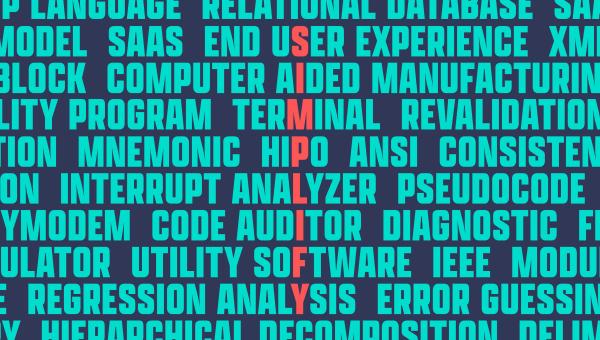How Employers View Digital Credentials: Key Insights and Trends
In today’s rapidly evolving employment landscape,digital credentials—including badges,certificates,and micro-credentials—are revolutionizing how candidates present their skills and how employers assess talent. As online learning platforms and remote work become more prevalent, understanding how employers view digital credentials is more crucial than ever for both job seekers and organizations.
What Are Digital Credentials?
Digital credentials are electronic representations of an individual’s achievements, skills, and knowledge. Unlike customary paper certificates or college degrees, these credentials are shareable online and often equipped with secure, verifiable metadata. Common types include:
- Digital badges earned through completing specific courses or skills assessments
- Online certificates from accredited programs and MOOCs (Massive Open Online Courses)
- Micro-credentials signifying mastery of specialized skill sets
- Verified portfolios containing samples of actual work
How Employers View Digital Credentials: Key Insights
the perception of digital credentials among employers has shifted significantly in recent years. While skepticism existed in the early days, today’s hiring landscape sees growing trust and interest, especially amid skills shortages and the need for workforce agility.
Employers Value Skills-Based Hiring
According to a 2023 NACE survey, over 70% of employers indicate a shift toward skills-based hiring. Digital credentials provide clear indicators of what a candidate can do, beyond just where they went to school.
Verification and Trust Are Paramount
Employers appreciate digital credentials that are:
- Issued by well-known institutions or industry leaders
- Verifiable through digital links or blockchain technology
- Specific about the skills,knowledge,or competencies earned
Industry-Specific Adoption
Professional sectors such as IT,data science,project management,and digital marketing are at the forefront of accepting digital credentials. Certifications like comptia, AWS, Google, and Coursera Specializations are often recognized or even required.
Trends Shaping the Future of Digital Credentials
The evolution of digital credentials is driven by both technology and changes in workforce demands. Understanding these trends can help job seekers stand out and organizations future-proof their talent acquisition strategies.
- Increased employer recognition: LinkedIn’s recent report highlights a 50% annual increase in digital badge mentions in job postings, especially in STEM fields.
- Integration with HR tech: ATS (Applicant Tracking Systems) and HR platforms now allow candidates to link digital credentials directly to their profiles, streamlining verification.
- Lifelong learning emphasis: Employers view stackable micro-credentials as evidence of a learning mindset and adaptability,key in a rapidly changing digital economy.
- Blockchain verification: Emerging use of blockchain ensures openness and prevents credential fraud.
These trends suggest digital credentials will only become more mainstream and valuable over time.
Benefits of Digital Credentials for Employers and Job Seekers
For Employers
- Faster skills verification and reduced hiring time
- Better matching of candidates to job requirements
- Access to a wider, more diverse talent pool
- Encourages a growth and learning culture within organizations
For Job Seekers
- clear demonstration of up-to-date, relevant skills
- Enhanced visibility on social media and professional networks
- Ability to stand out in competitive job markets
- Greater control over career development and lifelong learning
Real-World Examples and Case Studies
Many organizations are already integrating digital credentials into their hiring and talent development processes.
IBM’s Digital Badge Program
IBM launched its digital badge initiative to recognize and verify employee skills in cloud computing, AI, cybersecurity, and soft skills. By the end of 2022, more than a million digital badges had been issued globally, and IBM reported increased employee engagement and a more dynamic, skills-focused recruitment approach.
Google Career Certificates
Google’s professional certificate programs in IT support, data analytics, and digital marketing are highly visible on platforms like Coursera. Thousands of employers—including top tech firms—now recognize these credentials, allowing non-traditional candidates to compete effectively for roles.
Practical Tips: Showcasing Digital Credentials to Employers
- Highlight on your resume and LinkedIn profile: Add digital credentials to the “Licenses & Certifications” section or even your headline. Use the issuer’s official logo for credibility.
- Link directly to credentials: use verifiable links so employers can quickly check authenticity.
- Tell a story: In cover letters or interviews, explain the project, skills, or challenges represented by your digital badge or certificate.
- Stay current: Regularly update your skills and pursue recognized credentials in your industry.
First-Hand experience: Insights from Recruiters
“Digital credentials give us a clear, verifiable snapshot of what a candidate knows. We especially value badges from platforms like Coursera, edX, and specialized industry providers. They often tell us more about a person’s drive and current skills than a degree alone.”
— Sarah Jensen, Senior Recruiter, Tech Agency
employers also note that candidates with digital credentials are often better at communicating new skills and adapting to change—crucial assets in the digital workplace.
Conclusion: are Digital Credentials the Future of Hiring?
The way employers view digital credentials is evolving rapidly. With the workforce becoming more skills-focused and technology-driven, these modern credentials are increasingly valued for their clarity, reliability, and specificity.Employers seeking to future-proof their teams and professionals aiming for career advancement should embrace digital credentials as a core component of modern recruitment and development.
As more organizations prioritize skills-based hiring and technological integration, showcasing the right digital badges and certificates can dramatically boost your employability and career trajectory. Stay proactive, keep learning, and let your digital credentials open new doors in the workplace of tomorrow.

